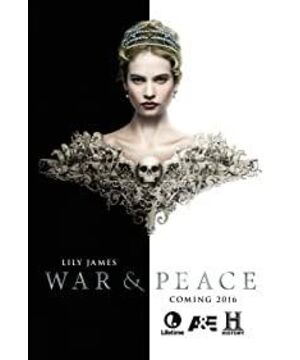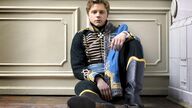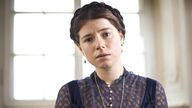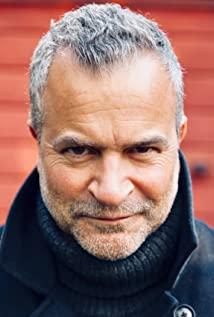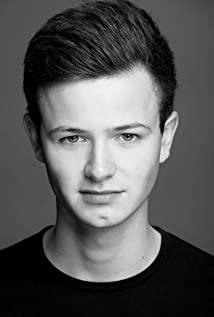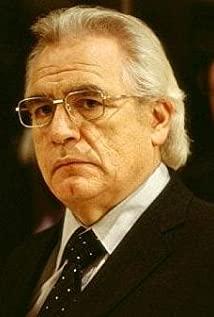After reading this set of books, I was very interested, but I didn't understand it very well, so I searched for the six-episode mini-series "War and Peace" produced by the BBC, opened it for a day, and finished watching the show.
Due to the length of the episode, many links and characters in the original work have been deleted, retaining the emotional line of one woman and two men. But the overall plot is relatively smooth, and the smooth transition between war scenes and peaceful life does not feel abrupt at all. The silly character modeling that I felt when I was reading the book became real and vivid in the episode. Natasha's liveliness, Pierre's innocence, Andre's integrity, and Helen's wildness are all presented in the form of images. The rural life of Petersburg, Moscow and Tongshan shows the beauty of Russia. Large sections of snow scenery remind us that this is a story that happened in the far north.
But what I want to write today is not the plot, but the different views on education from the perspective of the four major families in the plot.
Let's start with Natasha and the Nicola family. From the perspective of family background, they are almost on the verge of bankruptcy, and from the point of view of titles, they are also counts from the middle class. Natasha and Nicola's parents are gentle, warm and generous. Although they also know that the family's finances are getting worse, they take the initiative to move from the city to the countryside to live in the countryside. However, the two people's lifestyles have been developed, even living in the countryside. Still full of friends, the Countess is even more charitable, constantly helping her friends with money. At first glance, Natasha and Nikolai are very happy, and they are very happy every day. However, it is not difficult to analyze the life trajectories of the two people. In fact, the two people have never grown up.
Nikolai, as the eldest son in the family, lives completely according to his own ideas and hobbies. He loves war and all kinds of lively things, and does not listen to his parents to discourage his cousin who loves him. If the family's finances have been healthy, perhaps he will marry his cousin and live a happy life like his father. However, unfortunately, the family was on the verge of bankruptcy, and the outbreak of the war made him even worse, forcing him to bear the sudden family burden. When it comes to love, he is often half-hearted, and he is also at odds with his cousin, hesitating in the face of interests, until his cousin gives up voluntarily, leaving him a moral high ground. Treating the family, regardless of the real situation of the family, was able to lose a huge amount of property under the instigation of others. Treating the country is not out of lofty patriotism, but entirely out of love for military life. All indications are that Nikolai is just a child who has not grown up. His final marriage to Princess Maria was also very suitable for him, because the princess played not only the role of a wife, but also a guide in his life, similar to the role of parents.
Natasha is the author's beloved character, but even so, the author brutally arranged a fatal blow for her. Her life has been smooth sailing. Although her family is poor, her parents dote on her very much; she has a kind and sensible cousin who has been with her all the time. Marriageable age meets the best man for marriage. Everything looked so good, except for the one-year waiting period. The age of youth and youth is the age of liveliness and liveliness. If a lively and lovely girl is abandoned like this, it is extremely easy to be taken advantage of. Natasha lacked setbacks and pressures during her growth, and she did not have enough experience and perseverance to deal with such a situation, and finally almost destroyed herself. This is also typical of not growing up. Fortunately, in the end, the author arranged the best spare tire for her so that she could successfully complete her life transformation.
It is precisely because this happy family education is full of education and lack of education that both parents and children are children. If you were born in a peaceful age, such a family would undoubtedly be happy. Educational methods 70 points.
Let's talk about Andrei and the Maria family. The family's education is extreme. On the one hand, there is a very self-disciplined education, and on the other hand, there is a strong patriarchy. Brother and sister Andre and Maria are very self-disciplined in morality and have compassion for the world. In particular, Princess Maria, who has lived under her father's abuse and reprimands for a long time, can still maintain a kind heart. And Andre, tired of seeing the hypocrisy among the nobles and disappointed with the state power, was still able to fight on the battlefield again. He has always been an idealist and a complete person with a noble personality. . The old duke has made great achievements in his life, he has a deep insight into society and human nature, and he also adopts military-style high-pressure management of his family. Such an education model focuses on education and lacks education. Children are like soldiers, lacking a happy family atmosphere, and some just have a strong sense of responsibility. Home education 60 points.
The third is the Pierre family. Pierre's father was on the verge of death when he appeared. Although Pierre was only an illegitimate child, he was deeply loved by his father and inherited his father's title and all assets. His education was equal to zero, and his father gave him his life and all his wealth, but did not teach him how to live. The huge wealth did not bring him happiness and joy, but drove him into the endless abyss. Groups of villains surrounded him under various banners, coveted his property, and married a woman he didn't love, making his originally simple life unpleasant and full of humiliation. . The book contains strong religious beliefs, the Orthodox Church, Freemasonry, but the collapse of human nature cannot be redeemed by religion. Pierre himself is not guilty, and Huai Bi is to blame. 0 points for family education.
Finally, let's talk about Duke Wasit. From the perspective of family education, this family is undoubtedly a negative score. From father to child, they are all speculators and extravagant people. Selfish and selfish, always thinking about interests and how to have fun. Perhaps this is the way of education in aristocratic society, intriguing, but their existence does bring endless pain to others. In the end, the author let them all suffer the consequences and their families were broken. However, such families will continue to appear and continue to harm the society.
There is also the Boris family. The Duchess raised Boris alone, and the education method is exactly the same as that of Duke Wasit. Relying on the remaining influence of the family, Boris got a good job for him, and finally inherited a huge amount of property through marriage.
Looking at the leopard from the inside, the four noble families raised the next generation with different educational methods. These families support the operation of the whole of Russia. A hundred years later, the October Revolution completely destroyed the rule of the Russian emperor, which may be inextricably linked with these educational methods.
"Self-cultivation, balancing the family and the world". No matter how big a country is, it is made up of countless families, and families are also made up of individual people. This sentence of the ancestors applies to all countries. The country is based on the family, and education supports the family and the operation of the country. Education, education, love, responsibility, responsible for oneself, family, society, and the country.
View more about War & Peace reviews


